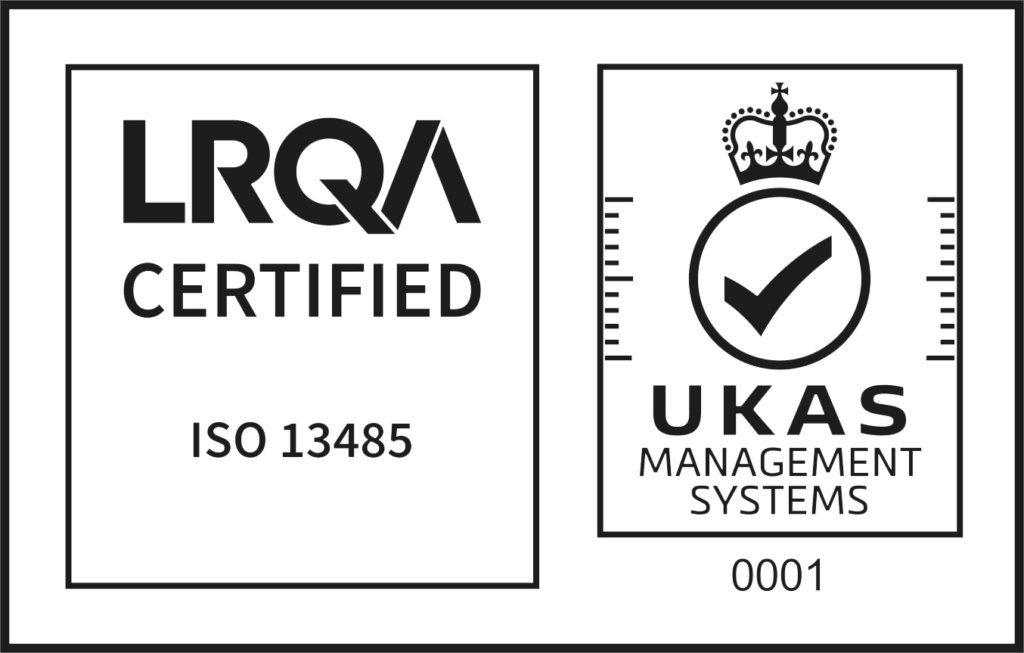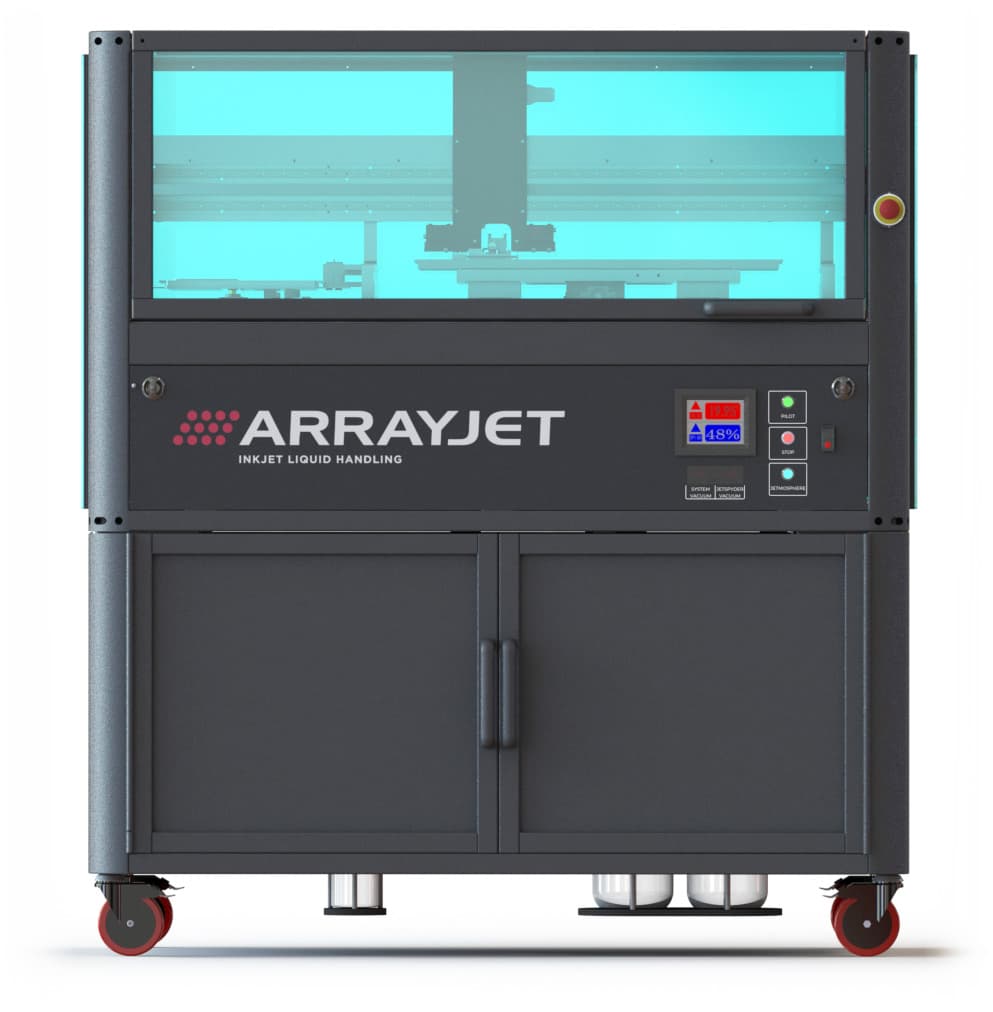Inkjet Microarray Applications
Reverse Phase Protein Array (RPPA)
Screen cell and liquid biopsies
20+ YEARS OF PROTEIN MICROARRAY EXPERTISE
Supporting your biomarker discovery
In a reverse phase protein array, or RPPA, thousands of lysed samples are immobilised onto nitrocellulose, allowing high-throughput screening for biomarker discovery and quantification.
Arrayjet instruments and services provide high-quality microarrays of cell and tissue lysates, serum, CSF, and other liquid biopsies. Samples can be crude extracts for maximum throughput or pre-fractionated for greater resolution.
Ideal for:
- Researchers exploring liquid biopsies for biomarker analysis
- Current RPPA users – ‘plug-and-play’ from your existing platform
- Biomarker researchers who need a high-throughput alternative to Western blots and mass spectrometry
Increase your Research throughput
The Inkjet Advantage
Our unique microarray platform delivers consistent, reproducible, high-density microarrays at the fastest printing speed on the market.
Get started easily
Adopt expert-optimised protocols. Print directly in adapted lysis buffers (e.g. RIPA) onto nitrocellulose.
Conserve precious sample
1 µl prints 100 16-pad array slides. Controlled, refrigerated conditions maintain sample integrity.
Never miss a spot
Guarantee 100% deposition yield with real-time quality control and automated spot reprint.
Maintain data traceability
Record all instrument parameters for consistency, metadata, and troubleshooting.

Instruments and services are delivered from our ISO 13485:2016 controlled manufacturing facility.

RECOMMENDED INSTRUMENT PACKAGE
Mercury for Biomarker Discovery (RPPA)
A robust and simple platform to produce microarrays of patient samples for biomarker discovery. Combines the world-class printing of a Mercury instrument with an autoloading microarray scanner, proprietary reagents, and expert optimised protocols.
The Mercury 100 system outputs 100 slides per batch. Load up to 2,300 samples (six 384-well plates) at once.
Low-volume, high-precision printing of spots from 100 pL – 10 nL. Print up to 70,000 features per slide.
Our 12-capillary LV JetSpyderTM can aspirate low volumes of sample from 96-well or 384-well plates. 1 µl sample can print 16-pad arrays across 100 slides.
Real-time quality assurance with automatic spot-reprint for self-optimising print-runs.
Preserve sample integrity with tight, traceable control of humidity and temperature down to 4°C.
Dual channel fluorescent scanner with 24-slide auto-loading for fast, easy data collection.
Customise print layouts, track samples, manage data, view operational records. 12 months Pro licence included.
Get started quickly with optimised printing buffers, hydraulic buffer, plates with JetGuard™ sample protectors, nitrocellulose slides and incubation chambers.
Fast, reproducible, high-quality microarrays
Print up to 70,000 features per slide
Use 1 µl sample to print 16-pad arrays on 100 slides
Never miss a spot
Preserve sample integrity before, during, and after printing
Simple data collection
Intuitive management of layouts and data
Start quickly with validated consumables included
COMBINATORIAL LIBRARY SCREENING
ArrayPlex™ Spot-On-Spot Microarrays
Arrayjet’s unique inkjet approach to bioprinting allowed us to develop ArrayPlex™ – our patented microarray platform. With ArrayPlex™ we can create multi-layered microarrays, allowing two libraries to be screened against each other. This takes throughput to the next level, generating millions of data points each week.
ArrayPlex™ is compatible with all sample types and detects hits at an equal or higher sensitivity to ELISA.
“We spot protein extracts onto nitrocellulose pads on slides for Reverse Phase Protein Array (RPPA) analyses. The protein microarrays are used for quantifying numerous specific proteins of interest in metabolism and immunity, using our library of >300 validated fluorescently labeled antibodies, for our own research and for numerous collaborators. This has been instrumental in publishing and for preparing competitive grant proposals. Printing perfect microarrays requires control of many variables and the Arrayjet customer service is a strong partner – always available to troubleshoot via email and coach during visits. The instrument continues to produce usable arrays even when the operator fails to get everything right. ”
Let's work together
TELL US ABOUT YOUR PROJECT
Our scientists will work to understand your needs and deliver a microarray solution for you. If you have an idea for a project – we’re excited to hear it.

